Selma Aybek Rusca
Ordentliche_r Professor_in
PER 09 - 2.106d
+41 26 300 8541
E-Mail
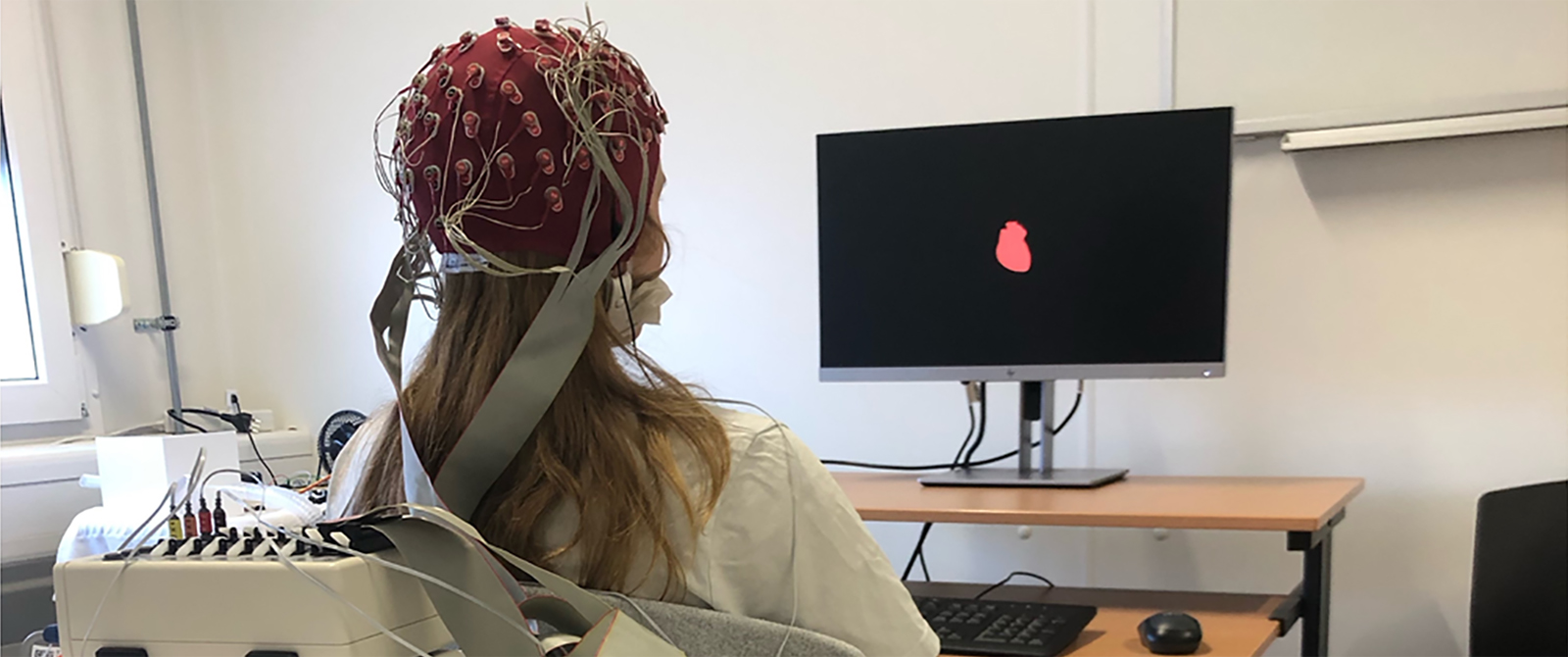
Our research focusses on Functional Neurological Disorders (FND), formerly called Conversion disorder. They consist of a neurological dysfunction that occurs in the absence of a classical neurological disease or lesions of the nervous system, but is distinct from other major psychiatric symptoms.
Our team is multidisciplinary, involving neurologists, engineers, psychologists and neuroscientists so that we can merge our expertise in conducting clinical research, aiming to better understand this disabling disorder and ultimately help the numerous patients suffering from FND.
An important part of our research is dedicated to the validation of clinical bedside signs in order to aid the diagnostic process, the identification of biomarkers (objective assessment of clinical signs, brain MRI) and epidemiologic surveys in order to define prognostic factors.
Another important part of our research aims at a better understanding of the links between stress, emotion regulation and the physical symptoms, by studying biological markers of the stress response (cortisol, alpha-amylase, motor freeze response and brain activity under stress).
Numerous patients undergo lots of examinations and face many different diagnoses until they meet an experienced clinician in the field of FND. A critical step in reaching a diagnosis of FND is a careful bedside neurological examination, aimed at excluding organic signs and identifying ‘positive’ signs suggestive of a functional disorder. Until now, several of those signs are known, but their validity is still missing.
In the Positive Signs study, we examine FND patients as well as organic controls. For both groups, we videotape the examination and record if and which positive signs are presented.
The project aims at a validation of potential positive signs for functional neurological disorder, in order to simplify the diagnosis and to accelerate the medical referral to an adequate treatment.

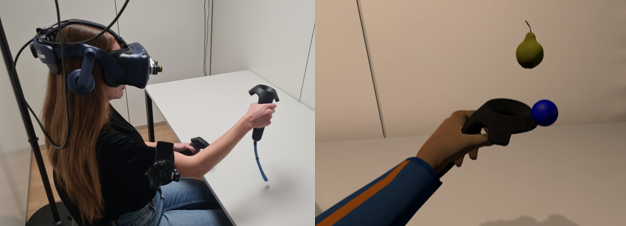
The sense of agency (SoA) is a fundamental aspect of human self-consciousness that allows us to make judgements about whether we did something ourselves or not. A disturbed SoA was often found in patients with FND. Additionally, patients with FND show a mechanism of increased self-monitoring – i.e., FND patients focus more on their affected limbs than their environment. Thus, FND patients experience a constant “nocebo” effect. This increased attention may maintain the patient’s expectation that they cannot control their body, which in turn maintains poor motor performance.
In the ARVR study, we explore the SoA and self-monitoring in FND patients within a Virtual/Augmented Reality (VR/AR) environment implementing video-eye-oculography. This study will shed light on the visual focus of attention of FND patients during a cognitive motor task in relation to their motor symptoms.
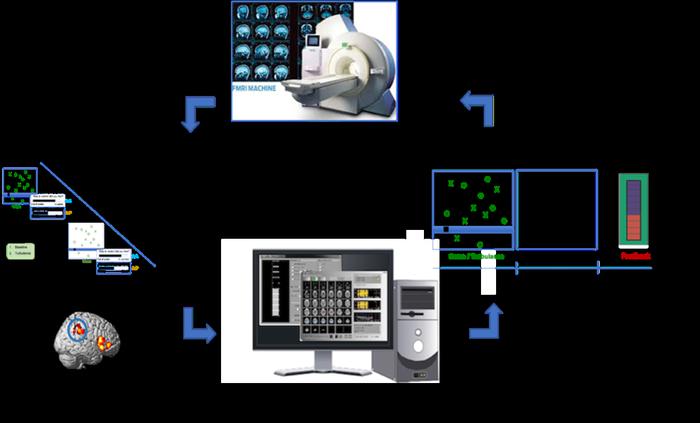
Real-time fMRI neurofeedback is a promising advanced, non-invasive technique that offers the possibility to influence brain networks without secondary negative effects. This technique has been successfully used in the clinical setting and has been proven to restore abnormal levels of brain activity in several disorders.
This technique has never been used in FND patients and thus, it opens a potentially ground-breaking new route into research, merging fundamental neuroscientific research and clinical application.
This study aims to enable FND patients to train, voluntarily, specific brain areas responsible for their symptoms and restore the functioning of the brain networks responsible for their symptoms.
In previous research, stress has been found to be involved in symptom occurrence: FND patients have been shown to have higher levels of stress biomarkers, such as cortisol and α-amylase.
Regarding stress reduction treatments for FND, Mindfulness Based Stress Reduction (MBSR) has gained interest in recent years. MBSR is an 8-week training program developed by Dr. Jon Kabat-Zinn that aims at promoting stress reduction by teaching to observe situations and think in a non-judgmental, nonreactive and accepting manner. The MBSR program has already shown positive outcomes on mental health in patients with various chronic somatic disorders and in patients with anxiety or mood disorder.
Our MBSR study aims at testing the effects of a MBSR program on perceived stress, stress biomarkers, neurological processes, and symptoms in FND patients. For this purpose, a group of FND patients will undergo a MBSR program for 8 weeks, while a control group will follow the therapy as usual for the same amount of time. We will measure both groups before and after this intervention. Additionally, a follow-up after 6 months will be performed, in order to study potential long-term effects.
Methodologically, this project uses neuroimaging, analysis of stress biomarkers, objective neurological examinations and questionnaires.

The diagnosis of FND is often a tedious process. Patients undergo multiple consultations for the same symptoms with different physicians until the correct diagnosis is found. This highlights the need to investigate objective biomarkers to support clinicians in their daily clinical routine.
Resting-state functional magnetic resonance imaging (fMRI) has been shown to be a promising tool in the search for biomarkers in neuropsychiatric disorders.
The Resting-state study aims at investigating resting-state functional connectivity as a potential biomarker for FND. By applying a multivariate classification approach on whole-brain resting-state functional connectivity data, we aim at discriminating FND patients from healthy controls.
As a first step towards a clinical application, we aim at validating this method in a multicentre setting, and to confirm that this classification tool can be utilized in clinics worldwide.
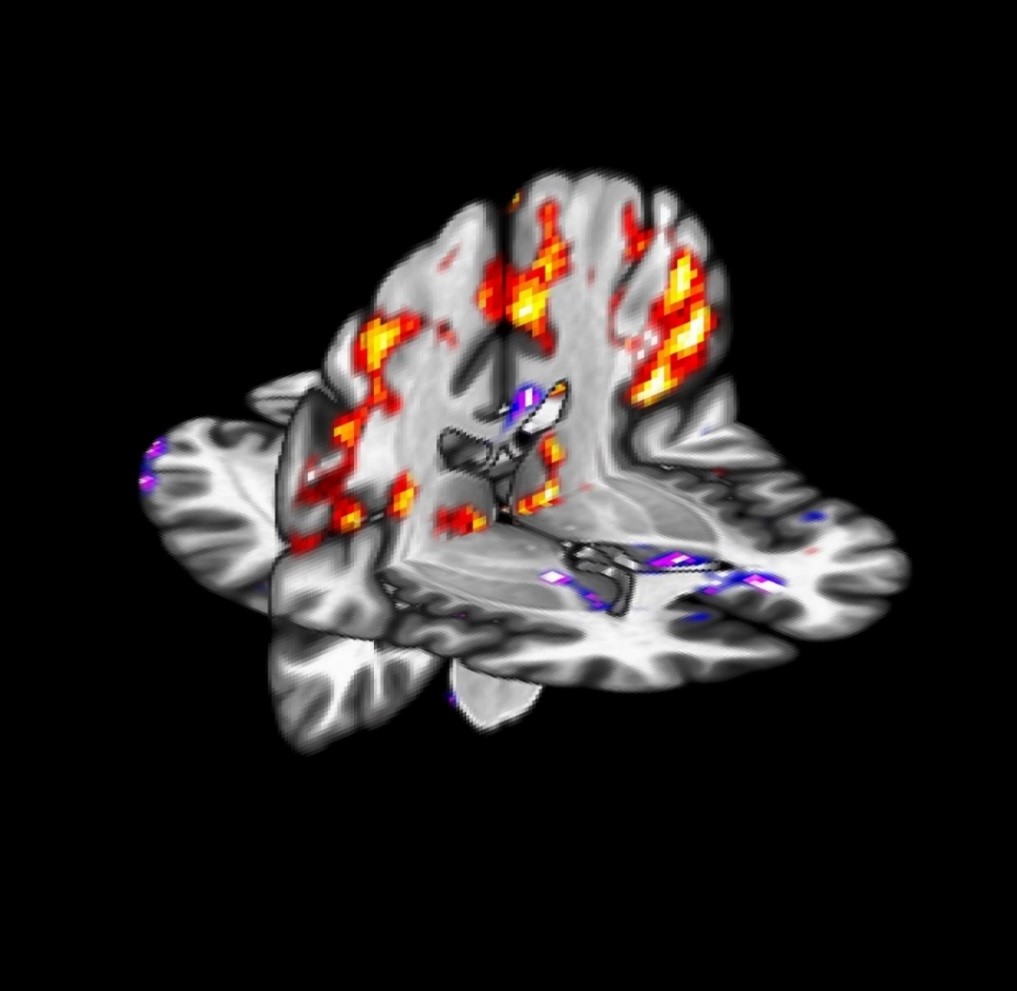
The symptoms of FND often resemble classical neurological symptoms, such as of a stroke, but no underlying organic cause can be found. Several theories investigate why those symptoms appear, and highlighted the importance of physiological and/or psychological stressors or trauma.
Stress research has advanced in understanding the impact of stress on brain structure and function. For example, cortisol has been shown to play an important role not only in the physical response to stress, but also in modulating brain functions such as emotional processing. In parallel, a certain susceptibility to stress has been shown to be associated with specific gene polymorphisms, which can be related to neurological changes based on gene-environment interactions.
The Biogen study aims at investigating how stress gives rise to a cascade of neurophysiological changes in specific neural circuits, which lead to the appearance of functional symptoms. In addition, the identification of different key players within the stress cascade would shed a light on the neuropathological mechanisms underlying FND.
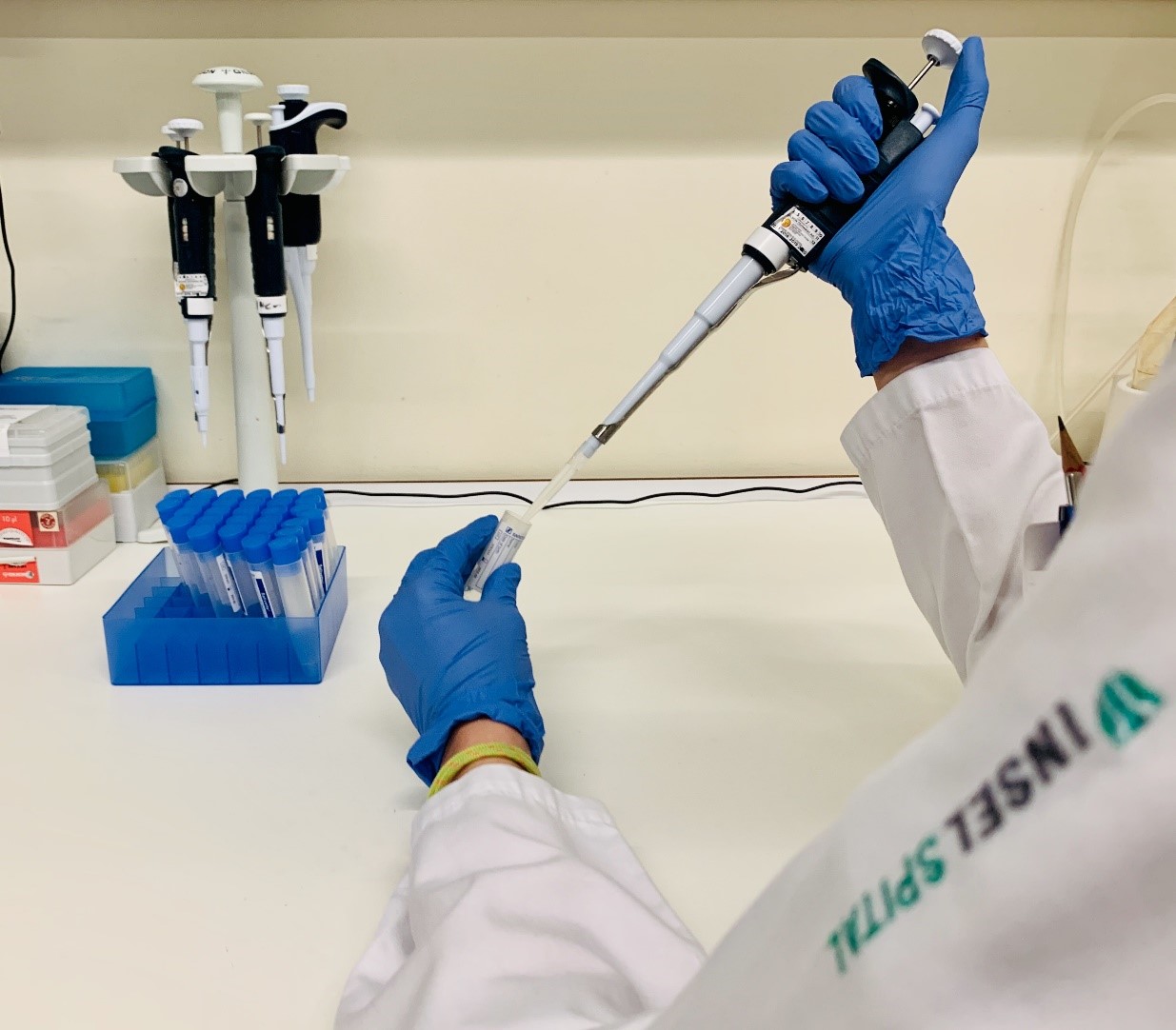
The sense of agency is an important aspect of motor control. An impaired sense of agency has been linked to several medical conditions, such as schizophrenia, or FND. A complex brain network subtends the sense of agency, and the right temporo-parietal junction (rTPJ) is one of its main nodes. Interestingly, patients with functional neurological disorders show abnormal activation patterns in the rTPJ.
In the TMS study we aim at investigating whether transcranial magnetic stimulation (TMS) can modulate activity in the rTPJ, in patients affected by FND and healthy controls.
We collect behavioural data before and after the application of inhibitory, excitatory, and sham TMS, and we study the difference induced by the stimulation. The inhibitory and excitatory protocols are based on the famous theta burst stimulation (TBS) protocols.
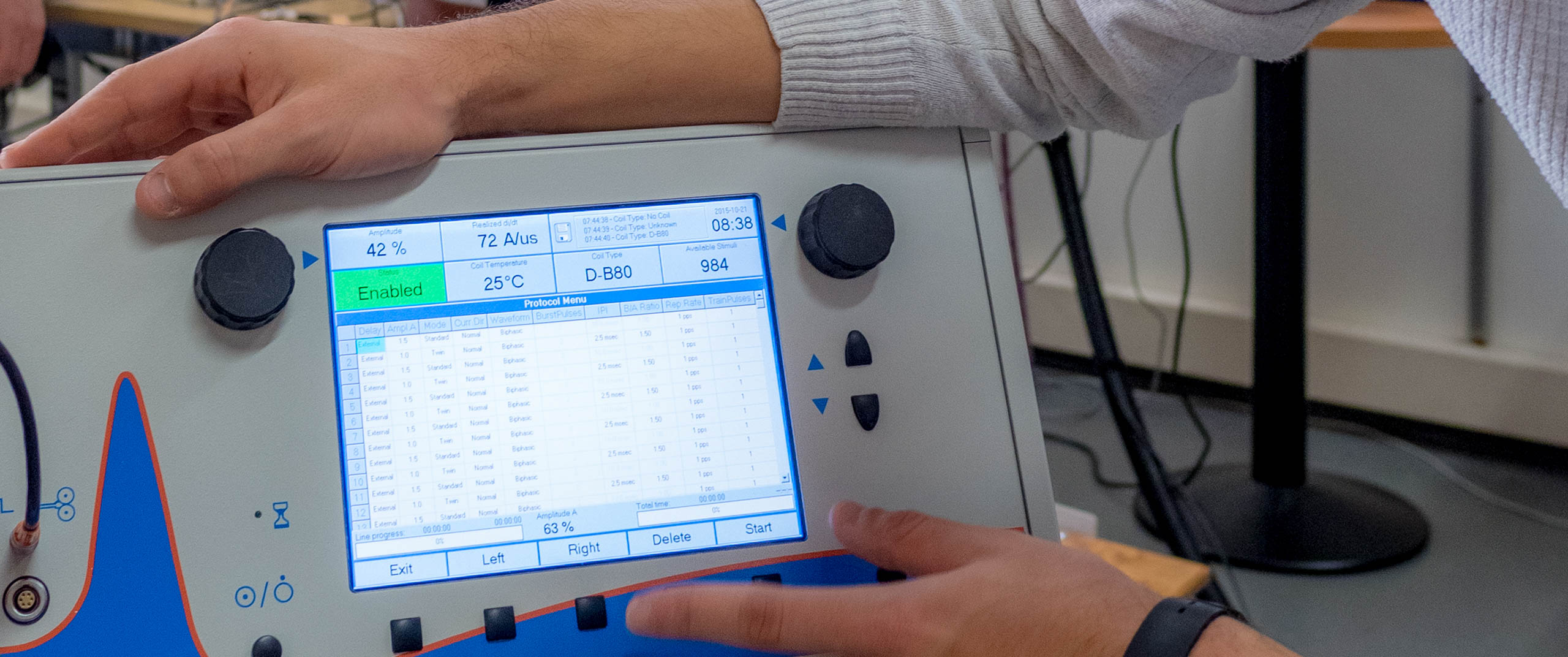
Sense of agency and prior beliefs are two cognitive processes describing, respectively, the sense of control over voluntary actions, and the processing of priors to explain sensory input. Evidence for an online component of these processes, during action execution, and an offline one, during retrospective thinking about that action, has been described. Neuroimaging studies of online agency showed activity in visuo-motor and parietal areas when the sense of agency was disrupted. The networks of offline agency and prior beliefs have received little attention.
The aim of the fMRI study is to test the neural correlates of agency and prior belief, in patients affected by functional neurological disorders and healthy controls.
We engage FND patients and healthy controls in a motor task where we artificially manipulate sense of agency and prior beliefs, under functional magnetic resonance imaging (fMRI). In the task, first participants first perform a simple game (online phase), and then judge their performance and sense of control over it (offline phase).

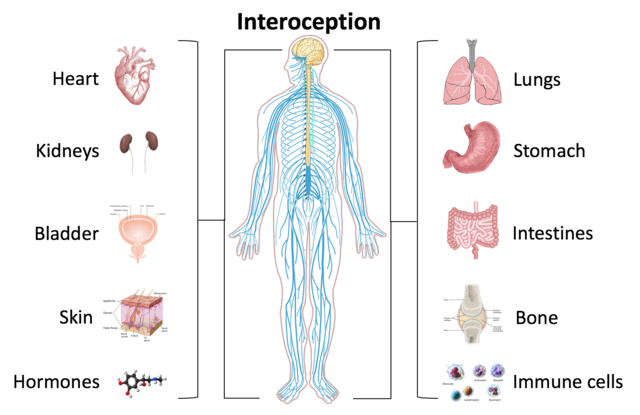
Interoception describes the signals coming from internal organs such as the heart or gut. This sensory modality has been of interest in various medical and psychiatric research and seems to be highly relevant for FND as well.
The aim of our project is to test the interoceptive performance of FND patients using a variety of tasks and to compare these with those of healthy controls (HC). We will include both traditionally used and newly developed explicit tasks, as well as implicit measures using an electroencephalogram (EEG). The tasks will provide scores that can be interpreted under the Bayesian Brain hypothesis by providing scores for predictive coding and interoceptive precision weighting. We will also assess trait and metacognition as a central component to complete the conceptual model of the Bayesian Brain. Finally, we will also investigate how biological components, such as the neuropeptide oxytocin, may play a key role in the precision weighting of interoceptive signals.
Overall, this study provides a novel approach to the pathophysiology of FND by incorporating concepts from computational neuroscience, biological components and psychosocial risk factors.
Current neuroscientific models suggest that FND symptoms have a common underlying mechanism: the loss of control over voluntary movement, also known as agency.
In our studies, we seek to better understand and characterise these impairments of full-body agency using virtual reality (VR) and body motion tracking. To do this, we have used experiments designed to test multisensory integration in bodily self-awareness. For example, we will compare the performance of FND patients and healthy controls to identify with a virtual avatar if they react differently to their own movements.
These projects will allow improving the characterization and understanding of FND symptoms.
Ordentliche_r Professor_in
PER 09 - 2.106d
+41 26 300 8541
E-Mail
Address:
Selma Aybek
Neurology unit
chemin du Musée 5
1700 Fribourg